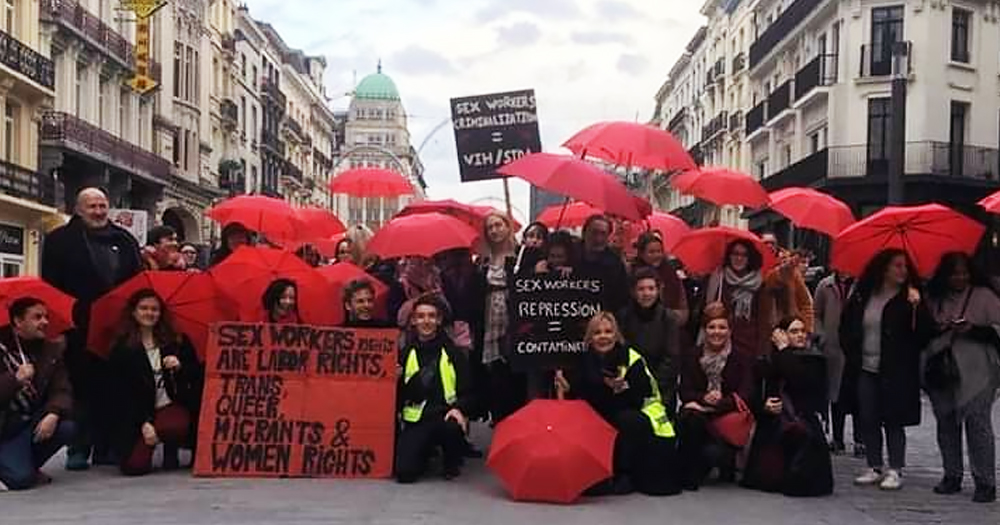The Federal Parliament in Belgium approved a new sexual penal code on March 17, officially making sex work legal in the country. Now the Sex Workers Alliance Ireland (SWAI) is calling for the decriminalisation of sex work in Ireland as well.
The new development in Belgium means that sex workers will be able to claim state pensions and other benefits, as the law will allow them to be legitimate employees and have the same rights granted to anyone else in the labour force. Moreover, they will be able to do things like hiring an accountant or getting a bank loan, which will make them less open to exploitation and will reduce their precarity.
Press release: Decriminalisation of sex work has finally happened in Europe.
SWAI welcomes the news that the first country in Europe has decriminalised sex work. “Belgium has shown us that decriminalisation of sex work in Europe is possible…” https://t.co/rfwBgNPuO5 pic.twitter.com/idFs0DKDC6
— Sex Workers Alliance Ireland (SWAI) (@SWAIIreland) March 19, 2022
The legislation was prompted by the Covid pandemic, during which sex workers were unable to claim benefits due to their profession not being a recognised job title. The change aligns Belgium to other countries in Europe, such as the Netherlands and Germany, where sex work is legal and regulated.
Instead, things are different in Ireland, where sex work is still subject to prohibitive laws and sex workers are poorly protected. The Sex Workers Alliance Ireland (SWAI) is an organisation that has been fighting for sex workers’ rights in the country for years. They provide support for sex workers for better access to rights, health and justice as well as a platform for them to share their experiences and be heard by policymakers and the general public.
Following the news of the recently-passed legislation in Belgium, they have called for the decriminalisation of sex work in Ireland too. “Belgium has taken the historic step to ensure that sex workers’ safety is prioritised. By listening to sex workers and allies they removed sex work from criminal laws which allows it to be regulated like any other profession,” they said.
NEW REPORT: “We live within a violent system.” Structural violence against sex workers in Ireland – this is what our research found (Thread) ?#decrimforsafety #rightsforsexworkers pic.twitter.com/AXBDMo2exq
— Amnesty Ireland (@AmnestyIreland) January 25, 2022
The organisation also brought attention to how making sex work legal is necessary for the protection of people who practice it. They pointed out that sex workers have been consistently excluded from discussions on consent. “Ireland must sit up and pay attention to the mounting evidence that criminalisation of sex work creates vulnerability and increases violence,” they claimed.
According to a report published earlier this year by Amnesty International, the prohibitive laws in Ireland put sex workers at risk of violence. The overwhelming majority of the interviewees for the report recounted experiencing various forms of violence while doing sex work. Making sex work legal in Ireland will ensure that these people are more safely protected while doing their job and that their needs are met in a concrete way.
© 2022 GCN (Gay Community News). All rights reserved.
Support GCN
GCN is a free, vital resource for Ireland’s LGBTQ+ community since 1988.
GCN is a trading name of National LGBT Federation CLG, a registered charity - Charity Number: 20034580.
GCN relies on the generous support of the community and allies to sustain the crucial work that we do. Producing GCN is costly, and, in an industry which has been hugely impacted by rising costs, we need your support to help sustain and grow this vital resource.
Supporting GCN for as little as €1.99 per month will help us continue our work as Ireland’s free, independent LGBTQ+ media.
